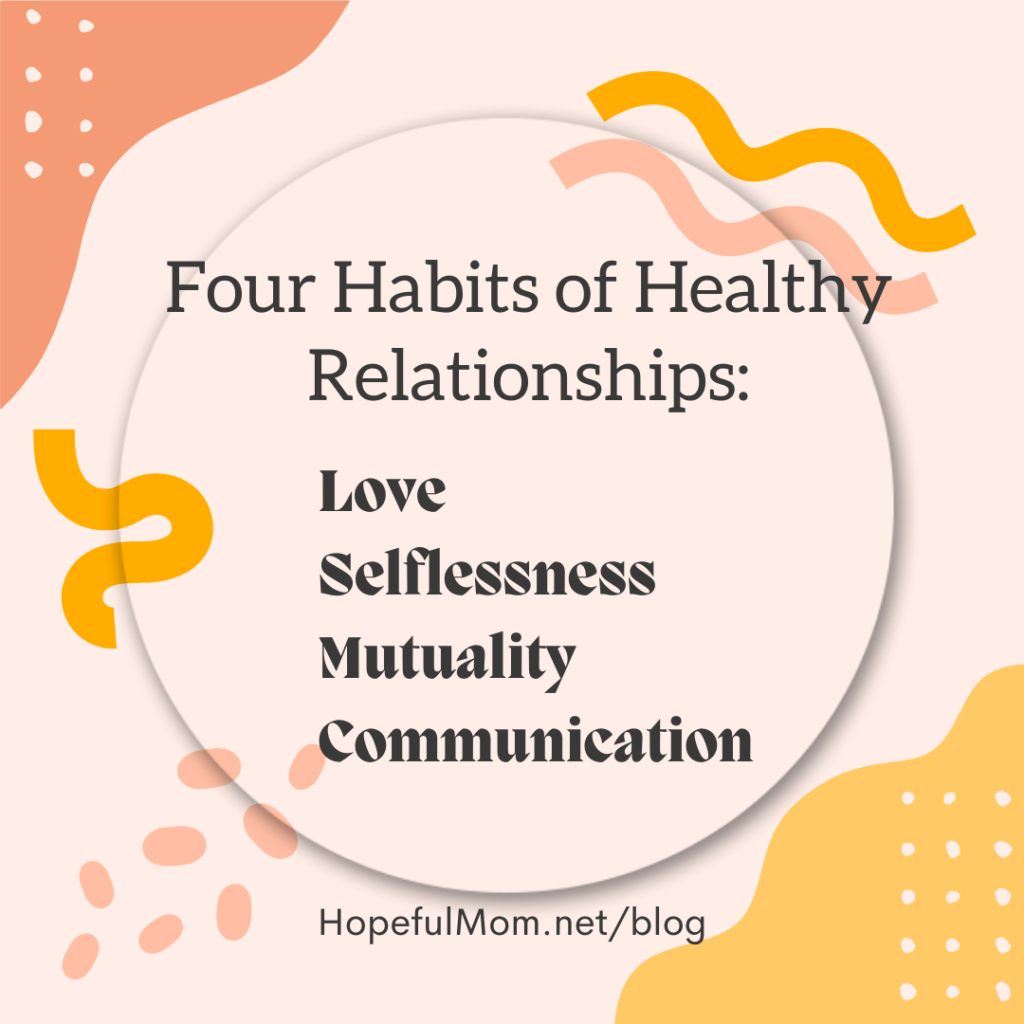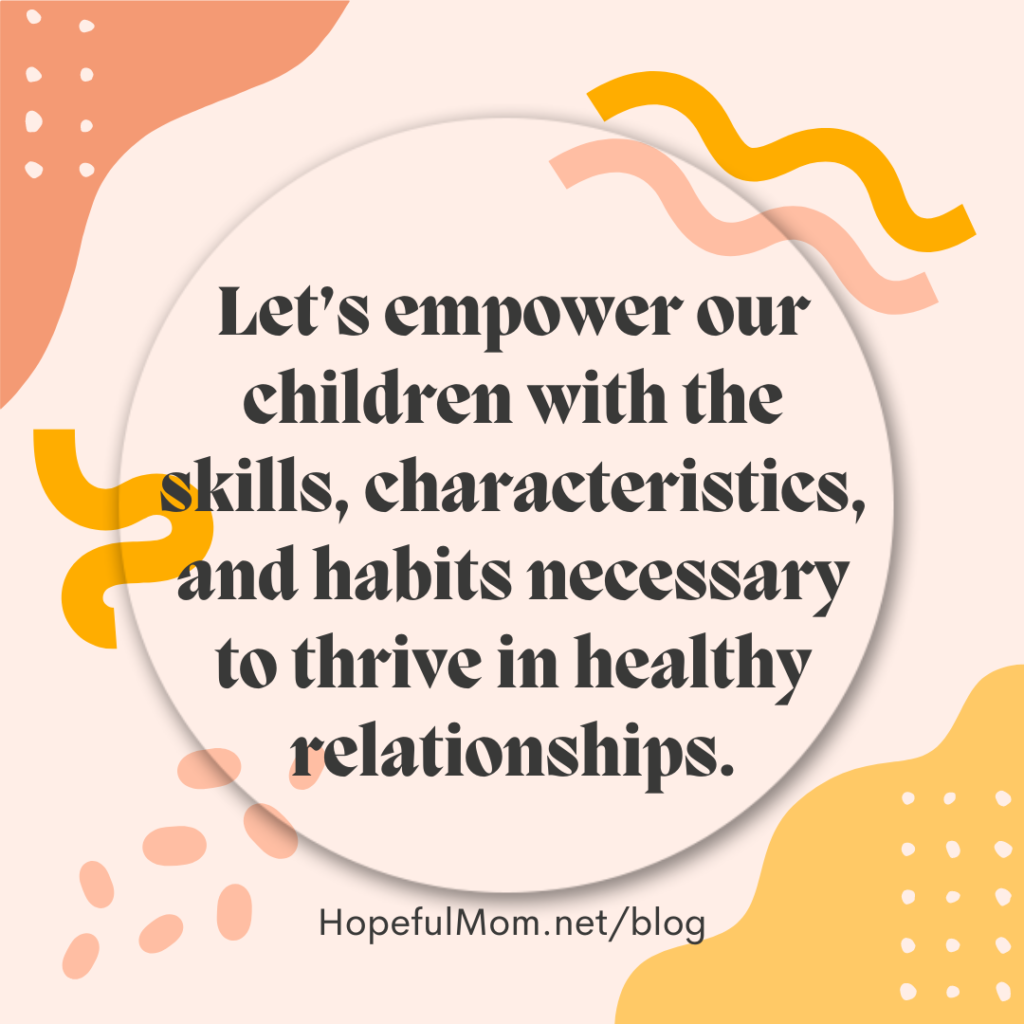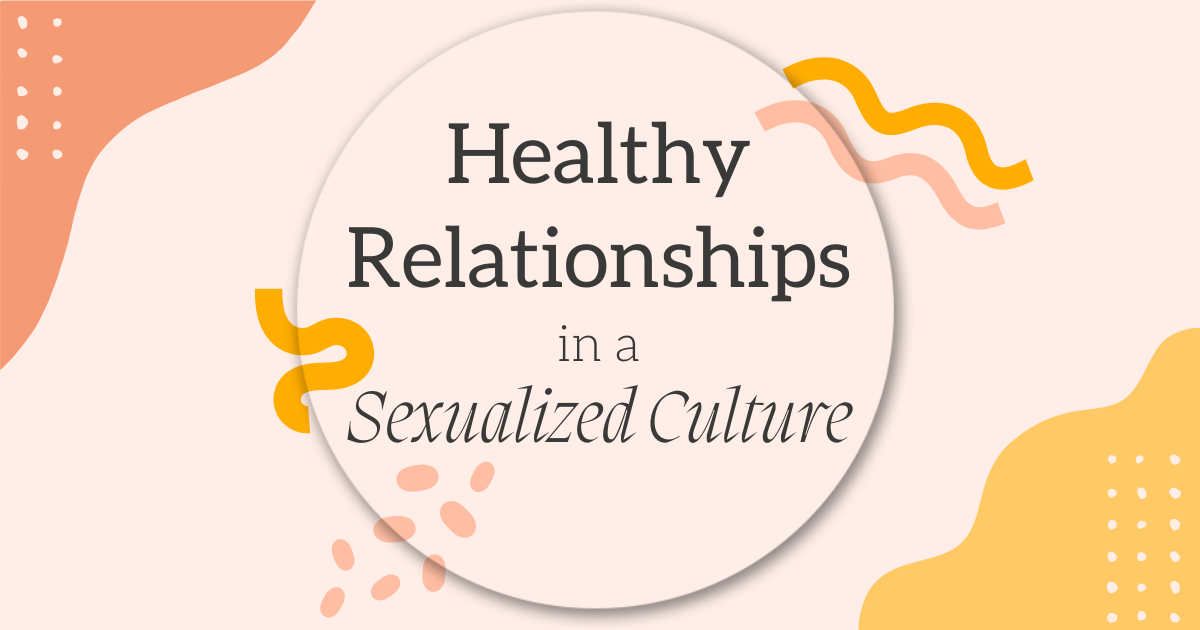Our sexualized culture heavily influences the next generation. Whether they’re swiping through their social media feed, binging a show, reading a book, or hanging out with peers, there’s no escaping messages that steer them away from healthy relationships and towards unhealthy paths.
Parents try to counter cultural expectations, explaining why the latest greatest isn’t the best option. We’re on the defense. A friend persuades our child to install Snapchat. Swat. “Snapchat’s bad.” An influencer talks up an OnlyFans account. Whack. “Don’t show your stuff to strangers.” A partner says everyone’s doing it. Smack. “That’s not true. You’ll be sorry.”
Yes, we need to pay attention to their environment, listen to their thoughts, and offer valid reasons behind our “no” decisions. However, we should also present alternative solutions. Be on the offense. Talk about and model healthy relationships.
Let’s look at four habits of healthy relationships. (You can find an entire chapter on each of these in Sexpectations: Helping the Next Generation Navigate Healthy Relationships.)

Love
The foundation is love—the love imbedded in us by God. “When we allow God to fill us with his love and acceptance, we subsequently love others well because his love overflows from us to those around us.” (Sexpectations, p. 65)
Healthy relationships start with a love that shows kindness, gentleness, and patience. Love that puts the other person’s needs above their own wants. This love is persistent, non-judgmental, and accepting. We love who the person is at their core (even when their behaviors are not acceptable and need addressed).
Before we can help our children understand what healthy relationships look like, we should examine our own. Are our relationships healthy? Do we model relationships built on the foundation of love?
Selflessness
I can think of no other human relationship which demonstrates selflessness better than parenting a child. Rearing children requires putting our desires aside at times. It means tending to the baby’s cries when all you want to do is sleep. It means crossing the room and picking up your toddler after they’ve fallen, even though you just sat down. And it means answering the phone and listening to your college-aged teen tell you about their day when you’ve got work waiting. Oh, but the rewards are great! When we see children as God sees them, they aren’t a chore or a task. They’re a privilege and a blessing.
When we love our children selflessly, we tend to their longings. Not just life-sustaining needs like food, water, air, and shelter. But these emotional longings as well: love and acceptance, safety and security, belonging, validation and feeling valued. If preteens and teens don’t find these needs within their own family unit, they will find them elsewhere.
A word of caution: Selflessness shouldn’t be confused with doormat or pushover, especially in the area of sex. Often, societal portrayals of sexual encounters do not model selflessness. Instead, these depictions are distorted, selfish, and objectifying.
Mutuality
“Mutuality means sharing and supporting each other. Healthy, loving relationships show mutual respect, influence, and accountability. Each person encourages the other in their dreams, goals, and aspirations while being loyal, honest, and trustworthy. They do life together. Their love is reciprocal. Define mutuality and direct the next generation to healthier interactions and attitudes concerning partnerships, friendships, and marriage.” (Sexpectations, p. 97-98)
The objective is to equip the next generation with tools necessary to distinguish which behaviors within a new relationship are healthy and which aren’t. Then they will look for positive and negative indicators.
Parents, we want to equip the next generation with tools necessary to distinguish which behaviors within a new relationship are healthy and which aren’t. Healthy Relationships in a Sexualized Culture #healthyrelationships #hopefulmom Share on XExamples of negative indicators or red flags include someone: calling them names, not respecting boundaries, making all the decisions, or isolating them. When around this person, they might feel intimidated, inadequate, guilty, stupid, pressured, or trapped.
On the other hand, green flags include the other person: trusting them, encouraging them to have interactions with others, valuing their thoughts and opinions, treating them with kindness, respecting them, following through on their word, and celebrating their successes. When around these types of people, they feel loved, respected, valued, safe, secure, and able to be their true self.

Communication
In healthy relationships, we communicate with the purpose of shared understanding and knowing each other more intimately, as well as expressing ideas and solving problems. It’s a form of connection. When our children feel that connection with us, they trust us and take our advice to heart, which is important, especially when talking about sensitive topics.
Parents, we are affecting the next generation. Let’s empower our children with the skills, characteristics, and habits necessary to thrive in healthy relationships. You’ve got this!
About the author
Barb Winters is the author of Sexpectations: Helping the Next Generation Navigate Healthy Relationships and founder of Hopeful Mom. She’s a certified mental health coach and offers one-on-one consultations for parents. For more about Barb, click "About" in the menu.




2 Replies to “Healthy Relationships in a Sexualized Culture”